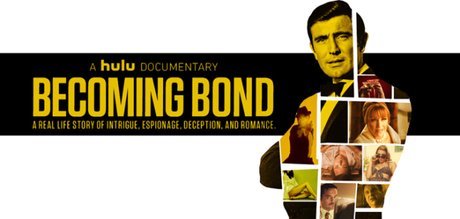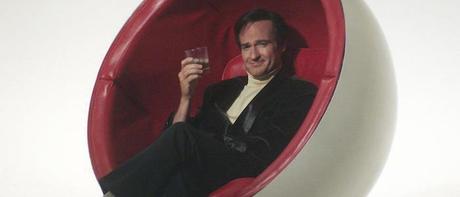
Becoming Bond, Josh Greenbaum's ingratiating new made-for-Hulu documentary, takes 95 minutes to say what could be roughly summarized in a paragraph:
In the 1960s, car salesman George Lazenby left his home in Australia to chase after a girl in England, and once there he enjoyed a series of coincidences which resulted in him first becoming a male model and then the new James Bond despite the fact that he'd never acted a single day in his life. A world of opportunity was open to him with a 7-picture, million-dollar deal on the table, but he walked away from all of it after just one Bond movie (On Her Majesty's Secret Service), citing his annoyance with the trappings of fame and lack of respect he was shown on set. He never meaningfully impacted pop culture ever again, and was eventually forced to quit acting and take up real estate. But he has no regrets and looks back on it all with extreme fondness.
The end.
It's a fine enough story, but why exactly does it warrant a feature length documentary? Because Lazenby's telling of the story is surprisingly hilarious. Make no mistake: this is his own self-serving The Kids Stay in the Picture, even down to opening with a quote which more or less equates to "I could be making a lot of this shit up, but, eh, you'll never know for sure. " Yet it's still a charmingly lighthearted dive into young love, the hedonistic 60s and the power of faking it until you make it.
Lazenby was given a death sentence as a child due to his failing kidney and pledged to live life to the fullest, leading him to continually beat the odds - medical, romantic and professional. From his account, he'd arguably already lived up to the James Bond ideal of 1960s masculinity before he ever even got to play the character, and somehow used his twin gifts of confidence and charisma to con his way past the gatekeepers who probably should never have let him close to the Bond role in the first place.
Greenbaum, who comes to this from a background of mostly directing episodes of TV sitcoms, primarily presents this all in a manner not dissimilar to Comedy Central's Drunk History. He doesn't liquor up the now 77-year-old Lazenby and rejoice in his drunken tellings of his own history. No, the Drunk History aping is not that literal. However, he does complement Lazenby's stone cold sober account of his life story with broadly funny, occasionally cheap-looking recreations, many of which star actors you'll recognize like Jane Seymour, Jeff Garlin, Jake Johnson and Dana Carvey. Josh Lawson, who played Anchorman 2 's Rupert Murdoch stand-in, is especially winning as the younger Lazenby, playing him with just the right balance of charming arrogance and amusing ignorance to still be endearing.

Except that last part rings fairly hollow since the documentary effectively ends after finally getting to him walking away from Bond and offers only Lazenby's brief "I did some fun stuff after that, got married, had kids" as evidence of his happy, post-Bond life. Moreover, there are multiple areas where Greenbaum could have plunged deeper. I, for one, cannot believe he didn't draw the obvious connection between the heartbreak Lazenby suffered in his romantic life immediately prior to filming On Her Majesty's Secret Service and the heartbreak his Bond suffers in the film's most famous scene, the brutal ending which sees Bond cradling the dead body of his new bride and delusionally assuring cops: "It's all right. It's quite all right, really. She's having a rest. We'll be going on soon. There's no hurry you see, we have all the time in the world."
But that's perhaps a minor quibble, a misreading of how deep Greenbaum actually wanted to go with this. His goal appears to have been to simply let Lazenby tell his story with all the charm of a real life World's Most Interesting Man, and then offer up some Austin Powers-like jokey recreations to help make the medicine go down. If that means meandering off on occasion to discuss Lazenby's first acid trip or that time he was having sex with a French girl when a life-changing phone call came his way then so be it.
THE BOTTOM LINEBecoming Bond is the documentary equivalent of bumping into a semi-famous person at a bar, and chatting them up about their increasingly improbable, but all-around awesome-sounding life into the wee hours of the morning. It's not exactly the most illuminating experience in terms of life lessons learned, but it's a damn fun evening, one best enjoyed if unburdened by "how much of this actually happened?" concerns.
ROTTENTOMATOES CONSENSUS

